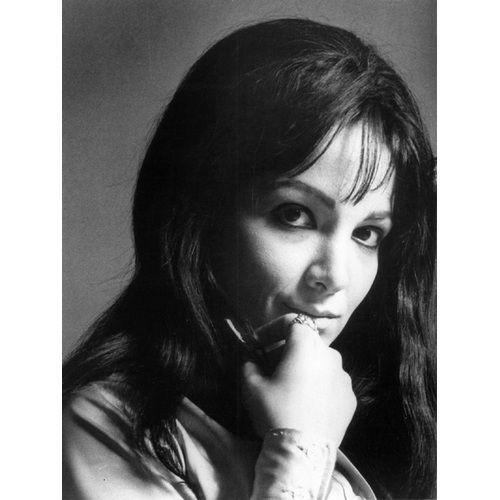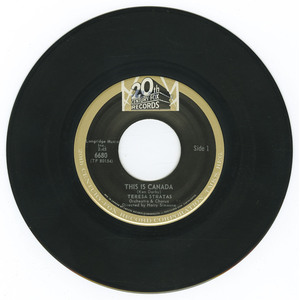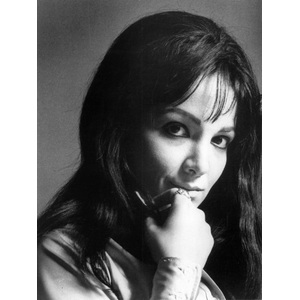Stratas, Teresa
Websites:
https://www.canadaswalkoffame.com/inductees/teresa-stratas/
Origin:
Toronto, Ontario, 🇨🇦
Biography:
Teresa Stratas is one of the most distinctive and expressive sopranos Canada has ever produced, a singer whose career moved far beyond traditional opera stardom into a realm shaped by emotional truth, fearlessness, and a lifelong commitment to storytelling. Born in Toronto to Greek immigrant parents, she grew up in a working-class household where her early musical talent emerged through the public school system and local performances. Her voice, even as a teenager, carried an unusual intensity, and by the time she entered the Royal Conservatory of Music she was already beginning to attract attention for an interpretive depth that belied her age. In 1959 she won first prize in the Metropolitan Opera National Council Auditions, an achievement that opened the door to one of the most remarkable immediate debuts in Met history. Just months later she appeared on the Met stage as Poussette in Massenet’s Manon, launching a relationship with the company that would span more than three decades.
Her rise in the 1960s and early 1970s was rapid and international. Stratas was soon performing in the major houses of Europe, taking on roles that showcased both her vocal agility and her dramatic instincts. She brought vivid psychological nuance to Mimi in La Bohème, Violetta in La Traviata, Nedda in Pagliacci, and the Governess in The Turn of the Screw, imbuing each with a modern emotional sensibility that set her apart from her contemporaries. Singing for her was never an exercise in vocal display; it was a means of capturing the inner life of the character. Critics often responded to this with a mixture of astonishment and admiration, noting that she could make even familiar roles feel unsettlingly immediate.
Stratas’s appetite for challenging work led her into repertoire that few star sopranos of her generation touched. Her portrayal of Lulu in Alban Berg’s opera became a landmark of postwar opera performance, combining technical command, vulnerability, and sheer courage. She later became one of the definitive interpreters of Janáček’s heroines, shaping Katya Kabanova and Jenůfa with rare psychological precision. She brought the same depth to Shostakovich, Britten, and contemporary composers, including works written specifically for her. These roles demonstrated not only her range but also her refusal to be defined by operatic glamour; Stratas preferred roles that demanded risk, emotional exposure, and complete immersion.
Parallel to her achievements in opera, she built a second, highly influential career as an interpreter of Kurt Weill, Rudolf Friml, and the borderline-theatrical repertoire that lies between opera and cabaret. Her two recordings devoted to Weill’s music, made under the guidance of Lotte Lenya and produced by John Mauceri, are still regarded as among the most authentic interpretations ever captured on record. She also explored Greek popular song, Yiddish cabaret, and repertory shaped by exile, displacement, and cultural memory. These projects revealed a singer unafraid of crossing boundaries and uninterested in elitism. Stratas sang with equal conviction whether the music came from the Weimar stage, the American musical theatre tradition, or a remote village song collected on her travels.
One of the least-known chapters of her early career occurred in 1961, when she recorded the Ken Darby songs This Is Canada and The Night for a Canadian 20th Fox single associated with the film The Canadians. Stratas appears briefly in the film and was noted by reviewers for providing one of its few musical highlights, making her involvement more than a simple studio overdub. At a time when she was just beginning to build her operatic profile, she lent her emerging lyric soprano to this lush, patriotic film ballad, conducted by Harry Simeone and released exclusively as a Canadian-pressed 45 manufactured by Quality Records. No commercial soundtrack LP was issued, and no confirmed U.S. edition of the single is known, making the disc a rare artifact capturing Stratas at the very beginning of her professional life, before international acclaim and awards would define her public image.
Even at the peak of her acclaim, Stratas rarely behaved like a traditional opera star. Her life was shaped by a sense of justice and empathy that eventually drew her toward humanitarian work. She spent extended periods in Romania during the late Ceaușescu era, working in orphanages and using her own resources to bring aid and attention to children living in catastrophic conditions. She has spoken candidly about the emotional weight of these experiences and how they reshaped her understanding of what art is for and whom it should serve. Her activism was grounded not in publicity but in conviction, making her one of the few opera figures whose offstage work became as meaningful as any of her performances.
Over the course of her career she earned multiple Grammy Awards, three Tony nominations, an Emmy, and widespread admiration from musicians, directors, and composers who valued her ability to strip away pretense and reach something stark, vulnerable, and true. She received the Order of Canada, adding her name to the country’s most respected cultural figures, and continued to be recognized internationally for her contributions to the performing arts. Her discography reflects a broad, adventurous spirit, encompassing traditional operatic roles, avant-garde repertoire, soundtrack work, and some of the most emotionally direct cabaret recordings ever made.
Teresa Stratas remains a towering figure in Canadian music, not only because of her achievements on the world’s great stages but because of her unwavering commitment to honesty in performance. She treated every role as a human story worth telling, whether it was a doomed Parisian seamstress, a Weimar survivor, a tormented heroine, or a young Canadian lending her voice to a film song meant to evoke the landscape of her own country. Few artists have moved so freely between worlds or brought such intensity to each of them. Her legacy continues to resonate across opera, theatre, film, and Canadian cultural history, marking her as one of the most compelling performers the country has ever produced.
-Robert Williston


